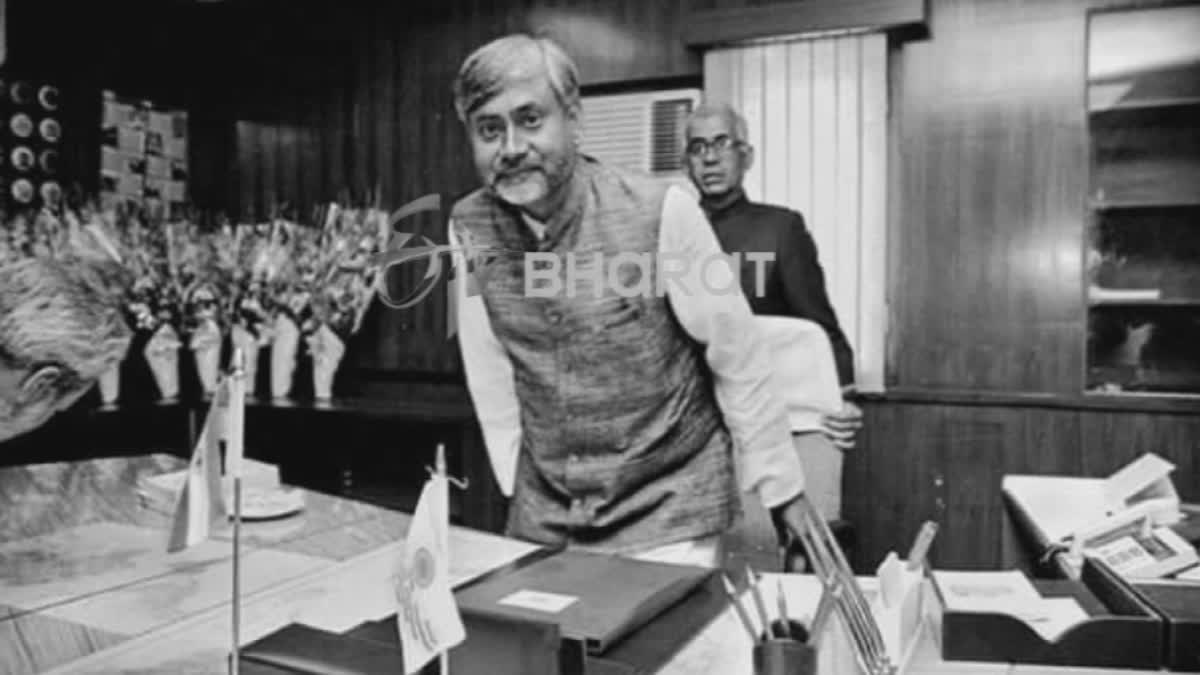Patna:National Engineer's Day, celebrated annually on September 15 to commemorate the birth anniversary of the renowned engineer Sir Mokshagundam Visvesvaraya, holds special significance for Bihar. The state's Chief Minister, Nitish Kumar, who is known for his dynamic political career, also holds a degree in Mechanical Engineering from Patna Engineering College. As Bihar observes this day, it's worth delving into Nitish Kumar's journey from an engineering student to a prominent political leader who has served as the Chief Minister of the state multiple times.
Born on March 1, 1951, in Kalyan Bigha, Nalanda district, Nitish Kumar's early life was marked by the influence of his father, a freedom fighter and physician. He received his primary education at a government school in Bakhtiyarpur and went on to pursue higher education at Patna Engineering College. It was during his formative years as a student that he developed a strong interest in politics, actively participating in political rallies and events, setting the stage for his eventual foray into the world of politics.
Notably, Nitish Kumar's son, Nishant Kumar, followed in his father's footsteps by pursuing an engineering degree at BIT Mesra. However, unlike his father, Nishant showed no inclination towards politics and rarely engaged in political activities.
Nitish Kumar's early years in politics were marked by gradual development and perseverance. His political journey gained momentum during the Loknayak Jayaprakash Narayan movement in 1974, where he actively participated and established connections with prominent figures like Rashtriya Janata Dal (RJD) Chief Lalu Prasad Yadav and Bharatiya Janata Party (BJP) MP Sushil Kumar Modi.
The current Chief Minister of Bihar faced his first electoral setback in the 1977 state assembly elections when he contested from the Janata Party. However, he did not let this deter his political ambitions. In 1985, Nitish secured a seat in the Bihar Assembly, marking the beginning of a long and illustrious political career. His leadership qualities also led him to become the President of Yuva Lok Dal in 1987.
Nitish Kumar's journey in politics took him to various ministerial roles at both the state and national levels. He won the Lok Sabha seat in 1989 and subsequently served as the Union Minister of State in the Ministry of Agriculture and Cooperation in 1990. Elected to the Lok Sabha in 1996, 1998, and 1999, he also held significant portfolios such as Railway and Agriculture Minister during this period.
However, the pivotal moment in Nitish Kumar's political career unfolded in 2000 when he assumed the office of Chief Minister of Bihar for the first time. Although his initial tenure lasted only for seven days, it laid the foundation for his enduring era of leadership. In 2005, he returned to the role of Chief Minister, a position he has held seven times since then, with a brief interruption during Jitan Ram Manjhi's nine-month tenure.
Nitish Kumar's leadership has been marked by several achievements and challenges. He has played a crucial role in the development and governance of Bihar, focusing on issues like education, healthcare, and infrastructure. His administration has also witnessed efforts to curb corruption and promote transparency in government functioning.
Over the years, Nitish Kumar has navigated the complex terrain of Bihar's politics, forming alliances with various parties to secure power. His partnership with the BJP and his role in the National Democratic Alliance (NDA) have been significant aspects of his political career.
As Bihar celebrates National Engineer's Day on September 15, it's a moment to reflect on the unique journey of Chief Minister Nitish Kumar—an engineer by education, but a seasoned politician by choice. His story serves as an inspiration for many, showcasing how dedication and determination can shape a remarkable political career.
Also read: Haryana: Congress MLA Mamman Khan arrested in Nuh violence case



